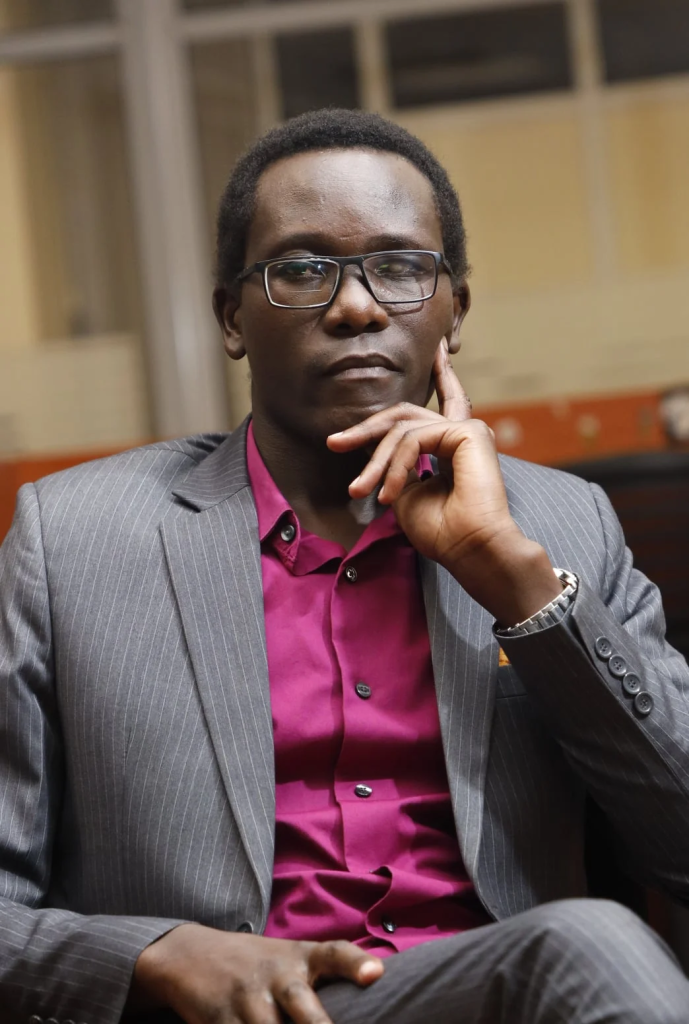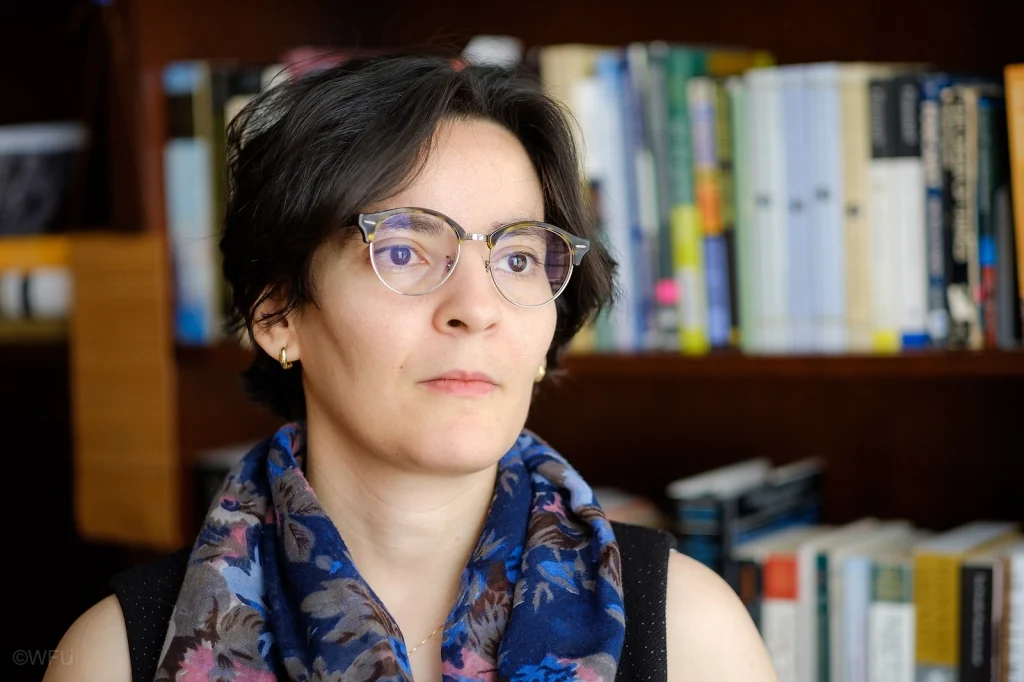More than 50 African presidents gathered in Beijing on September 4-6 for the 9th China-Africa Cooperation Forum (FOCAC). According to tradition, the triennial conference concluded with a plan of action and a declaration.
The program covered issues ranging from infrastructure and health to trade and security, reflecting the ever-expanding scope of the relationship. All around were commitments to strengthen cooperation on climate change and, in particular, renewable and clean energy, a prominent topic in the relationship since the last Summit in Dakar in 2021.
We asked four experts what signals they think FOCAC sent for cooperation on the energy sector, decarbonisation and “greening” – and what we can expect to see from the relationship in the next three years.
Fikayo Acredolu

Doctoral researcher in politics at Oxford University, focusing on China-Africa relations
The Beijing Plan of Action and Xi Jinping’s keynote speech suggest a strategic shift in energy cooperation between China and Africa. Unlike the 2021 Dakar Action Plan, which explicitly mentioned oil and gas exploration, the Beijing plan focuses on renewable energy cooperation, upgrading coal-fired power stations, and implementing a “special clean energy supply project.” This marks a departure from traditional oil projects towards projects based on sustainable energy sources.
In the next three years, we may see a greater emphasis on renewable projects, such as solar, wind, and hydropower, as China increases investment in infrastructure and provides technical expertise to African countries. Xi Jinping’s announcement in his keynote speech that “China is ready to launch 30 new clean energy projects in Africa” shows a strong commitment to expand the use of green energy in Africa. This can involve a variety of initiatives, from local solar and wind projects to regional electricity grids. Furthermore, exploring cooperation on nuclear technology, as mentioned in the action plan, provides an opportunity for Africa to transform its energy mix, providing a reliable, low-carbon alternative, subject to domestic regulatory environment and political acceptance.
This trend towards renewable energy strengthens China’s role as a key partner in Africa’s sustainable development and supports global climate goals. Expected developments include increased Chinese investment, technology transfer, capacity building, and potential pilot projects in nuclear power, all of which will enhance energy security and reduce emissions. This strategic shift is in line with China’s international climate commitments as well as Africa’s energy transition needs.
Eliud Kibii

Foreign affairs analyst and journalist from Kenya
In the 24 years since the first FOCAC meeting, China and African countries have met regularly to set their priorities and follow up on commitments made in previous meetings. This year, 53 African countries attended FOCAC, along with the chairman of the African Union Commission, Moussa Faki.
Although there was no specific declaration on climate change, as was the case at the last FOCAC in Dakar, I believe China and Africa will continue and should continue to build cooperation on climate change, adaptation, financing and loss and damage. – multi-sided and double-sided.
FOCAC itself is focused on supporting the economy and development. And the effects of climate change in Africa are affecting economic growth, development, agriculture, the blue economy, health, and causing resource conflicts.
The joint resolution saw China and African nations commit to the Global Development Initiative (GDI), a multilateral development plan launched by President Xi in 2021 to build on the United Nations’ Sustainable Development Goals and achieve “sustainable development”. strong, green and healthy world”.
In Kenya, the Export-Import Bank of China has financed the largest grid-connected solar power plant in East and Central Africa – the 55 MW Garissa Solar Power Plant – built by a Chinese company. I expect that investment and cooperation will continue with other African countries.
In fact, in the joint declaration, China resolved to help African countries in the efficient use of renewable energy and promised to further expand investment in Africa in “energy-efficient technologies, new and high-tech industries, green and low carbon and other low production projects”.
I also look forward to further cooperation through the African Union’s Agenda 2063: The Second Ten-Year Action Plan (2024-2033). One of its seven goals is to “strengthen the resilience of the economy and society against the effects of climate change”.
In particular, FOCAC’s joint declaration condemned the EU’s carbon tax known as the Carbon Cap Adjustment Mechanism. It has cited CBAM as an example of “one-sidedness and protectionism” adopted by some developed countries “under the pretext of addressing climate change and protecting the environment”. The measures “violate the right to sustainable development of developing countries”, it said.
While the CBAN is adversely affecting China’s terms of trade, the president of the African Development Bank warned at last year’s COP28 that it could also see Africa lose $25 billion a year. The convergence of China and Africa on this injustice provides a platform for cooperation to protect their respective interests.
Lina Benabdallah

Associate Professor of politics and international affairs, Wake Forest University
The announcement to launch 30 clean energy research laboratories is known. If successful, the labs are poised to contribute technology and knowledge transfer to the clean energy sector, something African leaders have been negotiating with various partners.
Green energy cooperation is in the interests of both Africa and China. We are likely to see more green energy integration including developing hydro and wind power sources. We also expect to see more investment in energy efficiency technology, low carbon emission projects, solar panel production, green mineral processing, and so on.
Christian-Geraud Neema Byamungua

China-Africa analyst and researcher
The Beijing Plan of Action is not short on commitments related to climate change. There is a promise to “implement 30 clean energy and green development projects”, and to establish a “special fund for the green industrial chain of China and Africa”.
There is another to strengthen the Center for Environmental Cooperation between China and Africa, established in 2020, and the Center for Ocean Science and Blue Economy Cooperation between China and Africa.
So we have a lot to hope for, but it will depend on Africa and China’s determination to ensure that those promises are respected. The question is, how serious is Africa in ensuring that China follows them?
In 2023, there were Chinese loans worth $290 million for green energy projects in Africa – a hydroelectric power station in Madagascar and a solar power station in Burkina Faso. There was also a loan for supplying electricity to an industrial park in Uganda.
We should expect more of those types of green projects to start.
I believe that the next three years should be very interesting for the continent in terms of climate change initiatives and investment from China.
Tom Baxter
Tom Baxter is Dialogue Earth’s international project manager for China and learning programmes, based in London. He joined the organization in 2018 and resided in Beijing until 2022. Tom holds an MA in history from the University of Glasgow and is currently completing an MSc in economic policy at SOAS, University of London. He worked in China for a decade and speaks and reads Chinese. Tom’s interests include the interplay between climate and development, China’s role in global development and environmental governance, and socio-economic issues such as industrialization, migration and labour.
#Roundup #ChinaAfrica #Summit #Means #Clean #Energy #Africa